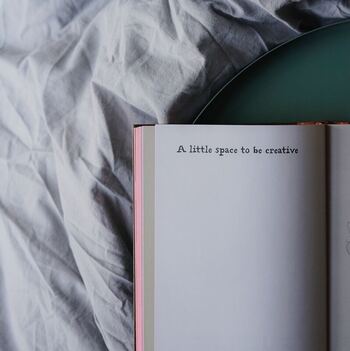|
30/7/2019 0 Comments How Do You Make Good Decisions?Imagine you have just been offered two great, but very different jobs. Or the opportunity to move to a different city has come up. How would you go about making a decision about what to do? We all have a strategy to help us make up our minds and make the best decision for our careers or personal lives. We’ve come across a few different types of decision making strategies in the WIP Community - which one sounds most like you? The List Maker A pros and cons list can be pretty straightforward and useful - if an idea has more cons than pros it looks like you have your answer. However while it’s a great idea to organise your thoughts, the List Maker can approach decisions with a little too much logic and not enough heart. Things rarely are totally positive or totally negative, so a List Maker should maybe consider a third column for those grey areas. TIP: Try applying a rating system to your list. If a negative point about your new job is that it has a lower salary compared with what you make now, but a positive point is that you will get to learn in new industry, score each point on how likely each is a deal-breaker. You might find your ‘cons’ list to be longer, but the points rank lower on the ‘deal-breaker’ scale giving you more context for the overall decision. The Intuitive The opposite of the List Maker and a more spontaneous person, the Intuitive trusts their gut and goes with it. An Intuitive may suffer from acting too rashly, however in general humans make most daily decisions by parsing small amounts of information and quickly assessing various outcomes. Although our intuition is innate, taking some time to be reflective on a decision before making it final can limit any regrets or the amount of fire-fighting necessary to rectify the situation in the future. But never ignore your gut feelings, as these can be the result of your brain unconsciously acknowledging something that your mind has missed - the look in someone’s eye or the distant muscle memory of being in a similar predicament before. Although ‘going with your gut’ can often be the hasty choice, using your intuition should be a first step in your decision making process. TIP: If you typically make decisions intuitively, take a beat longer than usual to settle on your final outcome. Listen to your inner self once you’ve made your decision - are the butterflies in your stomach still fluttering about? Check again for something you’ve might have missed.
Opinions are often confused with objective advice, when in fact opinions are based on subjectives biases on any given situation. The Procrastinator Although it might seem that the procrastinator is putting off making a decision, the delay in itself is a decision made. At that point the procrastinator has decided not to do anything - at least not yet. Why? Why put off something that you can decide today? For many of us, decision making is so overwhelming, especially with all the options and information that is available to us at our fingertips. Getting easily distracted from the important decision can come from the fear of making not only the wrong decision, but any decision. Without meaning to, the Procrastinator can sabotage what they want the most, because of this inertia. TIP: Overcome procrastination by getting into a focused zone, free from all distractions. It can be scary, but think about how scary it should feel by not doing something you. The Overthinker Another person who tends to be slow to get to the final decision is the Overthinker. They suffer from paralysis by analysis, and think the only good decisions come from utilising all the information possible, no matter how long it takes. Just like the Procrastinator, the Overthinker can even avoid making a decision altogether, which suggests this might be a decision making strategy driven by fear. The Overthinker is a combination of all the other decision maker types, and can struggle with decision making the most. TIP: Avoid overthinking too much by setting yourself a firm deadline. Yes, your information may be imperfect but chances are as an analytical thinker by nature you will already have more than enough details at your disposal to move forward. Is there ever really a wrong decision? Morals and ethics aside, day to day, over our lifespans whatever decisions we make in our life and work will be right for us in that moment, and will lead to the next opportunity or challenge - and the next decision to make. As long as our decisions are informed by logic as well as heart, we don’t over-analyse and we don’t delay we can be confident that we are making our best decisions.
0 Comments
Leave a Reply. |

